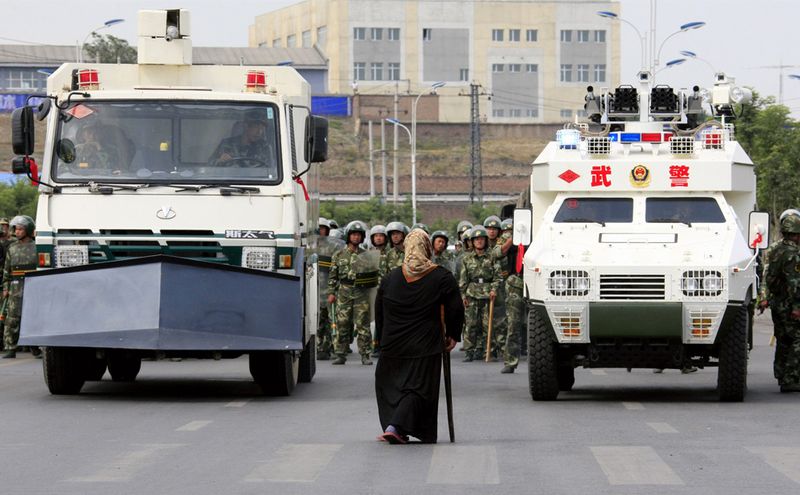
For immediate Release
June 30, 2015, 2:45 pm EST
Contact: Uyghur American Association +1 (202) 478 1920
The Uyghur American Association (UAA) calls on the Chinese government to respect the principle of transparency and provide comprehensive details on the fates of Uyghurs killed and forcibly disappeared during the July 5, 2009 unrest and the days following.
Official narratives of the unrest have avoided any discussion of human rights violations committed by Chinese security forces and a broad examination of discriminatory policies in East Turkestan as a contributing factor. Accounts offered by non-state sources have been censored and the individuals responsible for them punished.
A public, open and independent investigation into the events of July 5 will provide a measure of closure and alleviate tensions in the region. UAA urges the international community to remind Chinese officials that stability does not occur in an environment of repression, but in an inclusive and meaningful dialogue between the state and civil society.
“As the sixth anniversary of the July 5, 2009 unrest approaches, it is important to remember how China conducted a crackdown that violated Uyghurs’ right to life, and committed instances of forcible disappearance. In the weeks and months following the Urumchi unrest, credible evidence describing state violence on Uyghur protestors and documented cases of forcible disappearance emerged. To this day many families do not know the fates of their loved ones,” said UAA President, Alim Seytoff.
Mr. Seytoff added: “While Uyghurs call on China to reveal the full extent of the crackdown, we are aware that under the presidency of Xi Jinping conditions in East Turkestan are unlikely to improve. Continuing state violence on Uyghurs during Xi’s rule, in particular in Alaqagha and Elishku, as well as tight controls on information, are indicative of the Chinese state’s hardline.”
On July 5, 2009, Uyghurs peacefully assembled in People’s Square in Urumchi to protest government inaction over a deadly attack on Uyghur factory workers in Shaoguan, Guangdong Province. The details of what happened that day, and over the following months, have been unclear. What is known is that the city erupted into unprecedented unrest that resulted in the deaths of an unknown number of people.
Reports issued by Amnesty International and the Uyghur Human Rights Project described eyewitness accounts of state security forces firing on peaceful Uyghur protestors. Article 3 of the Universal Declaration of Human Rights and Article 6 of the International Covenant on Civil and Political Rights protect the right to life.
Six years following the unrest questions remain over enforced disappearances of Uyghurs. Further troubling aspects of state security actions post-July 5, 2009 are reports of minors arbitrarily detained, tortured, sentenced or simply disappeared. This element of the Chinese government’s crackdown puts the People’s Republic of China in contravention of its obligations under the Convention on the Rights of the Child, particularly Article 37. UAA believes international pressure should be applied on China to sign and ratify the International Convention for the Protection of All Persons From Enforced Disappearance and to ratify the International Convention on Civil and Political Rights.
Since July 5, 2009, Chinese officials have silenced Uyghur voices about the unrest, and have actively sought to suppress information that contradicts the official narrative. Besides a 10-month communications blackout, harsh punishment for Uyghur webmasters and journalists aided official efforts to manage and control information emerging from the region on the unrest.
The overwhelming pattern emerging from what documentation is available is lack of clarity from the Chinese government on a number of issues. It is unclear how many Uyghurs were killed and forcibly disappeared in state security operations. This absence of transparency is especially troubling in terms of accountability for human rights violations.
